#coronation 1952
Explore tagged Tumblr posts
Text
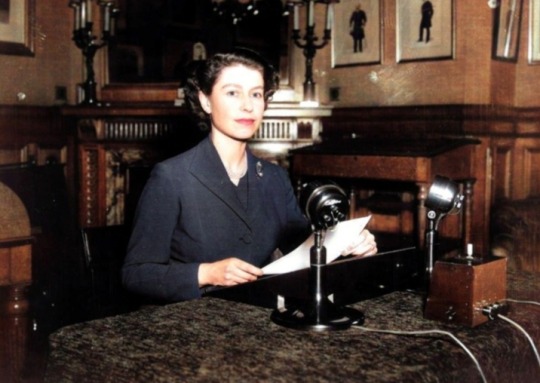
Queen Elizabeth II sits by the microphone, paper in hand, to prepare for her very first Christmas address to the nation from her study at Sandringham House, at 3:07 PM on 25 December 1952, approximately ten months after her father's death.
Five years later, the message was broadcast on television for the first time. 🎙️📺
#Queen Elizabeth II#coronation 1952#british royal family#christmas#christmas message#microphone#royal christmas message
20 notes
·
View notes
Video
youtube
LECTURE 2 – THE WORLD THAT GAVE US THE BEATLES: For millions of Britons, the Coronation of Queen Elizabeth II on June 2, 1953, was an event of profound importance. Elizabeth II (a.k.a., Elizabeth Alexandra Mary) was only 25 when her father, King George VI, passed away on February 6, 1952. The gap between the George’s death and Elizabeth’s coronation had to do with a tradition of waiting for a period of time to give the nation a chance to mourn the king’s death. On Coronation Day, millions of people watched the ceremony on the newly emerging technology of the age, television. Indeed, this was the first British coronation to be televised. They viewed a grand spectacle of epic proportions. In addition to television cameras that filmed the event in black and white, there was also colour footage shot of the Coronation. For millions of Britons, it was a defining event of their lives.
#England#Queen Elizabeth II#Coronation of Queen Elizabeth II#1953#King George VI#1952#Coronation Day#television
0 notes
Text
Or this one!

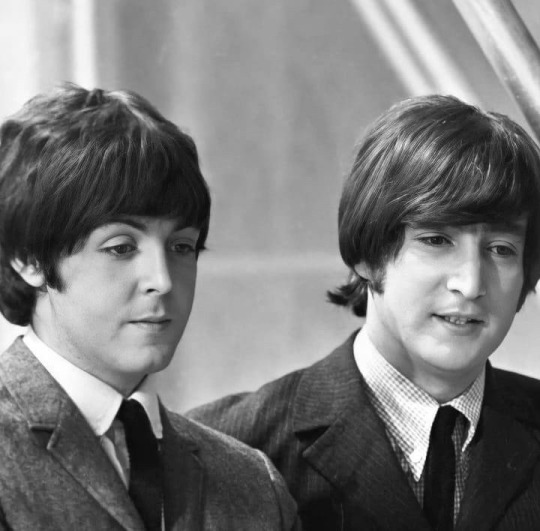
#look at baby Paul (1952)!#<- so precious#oh God I sound like#someone who collects baby dolls or something#maybe edible ones made of marzipane#paul mccartney#the Quarry Men#Coronation Essay Prize Winner Paul#seashell eyes Paul
54 notes
·
View notes
Text
Gardian de Lumiere I

Xavier x MC
Warning: Fluff, mentions of abuse
Word Count: 1952, no proofreading
Preview: MC snuck out of her home from her father who pays no attention to her. She ran into a gentleman who he called himself Lumiere. She felt she had fallen for him...
Gardian de Lumiere is Bodyguard Xavier x MC where MC is the daughter of the duke from the East. MC took Lumiere as her bodyguard, completely unaware of his identity.
Disclaimer: Gardian de Lumiere means Light Guardian in french. I just use google translation. If I got this wrong, please do let me know.

It had been my nightly routine. I snuck out to have my alone time, away from the stuffy mansion. I go to random places at night and today I chose the pub.
"Have you heard?"
"Oh, yea, the crowned prince will have his coronation soon. I wonder what he looks like."
I quietly sip my drink as I listen to the gossip. Recently, it had been the crowned prince. Several hundreds of years ago, a horrible incident happened to the royal family where someone assassinated the crowned prince as soon as he was born. The royal family struggled for years, trying to put another crowned prince for the future throne. Ever since then, the royal family never publicized the birth of the crown prince, the name and face of the crown prince until the prince could fend for himself.
"Are you here by yourself?" A gentle voice asked.
I looked up to see a young man with soft blonde hair and blue eyes. He looked so handsome I nearly was captivated by his beauty. "Yes... I mean no. I'm here with my uh, brother." I lied. I inwardly winced on how bad my first impression is. Considering how handsome the young man is, I wore very plain clothing, just so I could blend in. The young man, however, dress a bit nicer than me.
He chuckled, "Alright. Would you and your brother mind if I sit next to you?"
I shook my head, "Go ahead."
He nodded a thanks and sat at the bar stool. "Something light for me please." He said to the bartender. Then he faced me, "What's your name?"
"I uh..." I racked my brain for a fake name. "Tara." I quickly used my maid's name. Forgive me, Tara!
He softly chuckled, "It's nice to meet you, uh Tara. I'm Lumiere."
I nodded, "It's also nice to meet you, Lumiere."
Then we sat there in silence as I didn't want to talk too much, afraid I might give my identity away.
"Where do you live?" Lumiere asked. "I live near the capital."
I nodded. Of course he does. He have that accent where people from the capital are from. "I'm toward the west." I lied again.
"The west? That's very far from here!"
"Yes, I travel for a living."
"That sounds fun. I would love to travel with you."
"Sorry, I travel alone." I quickly said.
Lumiere cocks his head slightly, "You don't travel with your brother?"
I paused, realizing the mistake I made. I cleared my throat, "I mean I travel alone with my brother."
Lumiere smiled, "I see."
I nodded and we both sat there in silence again. I checked my pocket watch and realized I should get going. The gate will close soon and climbing the gate is a pain.
I got up, put the money on the counter, and looked at Lumiere, "Sorry, I had to go."
"Would I be able to meet you again?"
I shook my head, "Sorry, I have to travel toward the north." I lied. Again.
Lumiere nodded, "It was nice meeting you while it lasts."
I nodded, "Good night." I didn't even wait for his response when I fast walked toward the door.

I lay on my bed and sighed in relief. I managed to get back into the mansion before the gate closed.
I wasn't suppose to be out this late. But I always snuck out. No one really cared anyway. My father hated me. He wished his first born to be a son, but obviously, he didn't get what he wanted. And when he did get a son, he spoiled that boy rotten and that boy is barely able to walk.
I wouldn't even be surprised if he had forgotten about me. Sometimes I wonder if I'm really his daughter. The way he treated me is no better than the maids. Knocked things off my hand, slapping me across the face, shoving me around.
Then my mind floated to the young man I saw at the pub. He was so enchanting. His face looked so soft and gentle. I wished I'm able to see him again. However, knowing the power that my father holds, I fear my father would do something to Lumiere.
Should I run away? Should I try to find Lumiere and ask him to take me to the capital? Away from here?
As I ponder those thought, I slowly drift into sleep.

I flipped through the page of the book. It's late afternoon. I have quite a boring routine. As soon I wake up, I do my side of the work as the temporary head of my family until my half brother reached the age to be able to take over. Then I would go to my studies. Then after that, I have all the time to myself. Which is a couple of hours before dinner. Then right dinner, I prep everything for tomorrow. Sneak out the house, come back, go to bed, wake up, then start the same routine.
I typically spent my free time before dinner to read. I had already read all the books in the mansion, so this library is the go to for reading.
"Good afternoon to you," My head whipped toward the familiar voice. My eyes widen to see Lumiere standing over me.
He looked at me up and down, "You dressed very well to be traveling."
I inwardly cursed myself for not changing something far less extravagant. Last night, I dress too shabby. Today I dress too extravagant. I opened my mouth, trying to say an excuse or another lie, but came up empty so I closed my mouth and turned my head away.
He softly chuckled, "Would you mind if I sat next to you to read?"
I wanted to say no, but I ended up nodding.
"Thanks," He smiled and sat down. Then he looked at my dress. I cursed myself more for wearing a dress that clearly showed which region I was from. "Are you from here?"
I sighed, "You already seen through all my lies. Why ask?"
Lumiere shrugged, "Probably I wanted some truth from you."
I stare into his sky blue eyes, it twinkled slightly. It is so...
"Tara?" He waved his hand in front of my face, interrupting my though.
I cleared my throat, "My name isn't Tara. It's MC."
Lumiere looked at me like as if he knew, but he still chuckled and pretend he didn't know. "Should we reintroduce ourselves, MC?" He extend his hand toward me. "I'm Lumiere, it's nice to meet you, MC."
I smiled and shook his hand. His hand is so soft but firm. "It's nice to meet you, Lumiere."
When I let go of his hand, I crave for his touch again. Trying to distract myself from him, I went back to reading. However, I couldn't read a single word in as my minds are completely distracted by Lumiere's presence. At the corner of my eyes, I catch him staring at me time to time.
One moment it was late afternoon, the next moment, the sky turned dark. I quickly jumped up, "Sorry! I have to go!" I panicked. If my father found out that I arrive late for dinner, he'll start throwing a tantrum.
I quickly shoved the book back to the bookshelf and bolt toward the entrance. Lumiere followed close behind, "Wait, wait! Let me escort you!"
I turned around to tell him it wasn't necessary, but I end up tripping on my dress and I started to topple over.
"MC!" I heard him yell. I closed my eyes, embracing myself from impact when I felt a strong arm around my waist. I opened my eyes to find Lumiere holding my waist, just enough for me not to fall on my face.
"I uh, thanks?" Feeling the heat on my face. I wanted to dig a hole and climb in and die. I was too embarrassed to face him.
"You're welcome." Lumiere gently put me onto my feet. "I was going to ask if I can escort you. It had gotten very late."
I nodded, "Thanks."
"My pleasure." Lumiere smiled gently.
We were in my house's back garden, which is practically a small wood. I then realized that I shouldn't have him escort me. He'll find my identity really quick if he does. I turned and faced him, "Um, I can by myself from here."
Lumiere blinked, "Here? In the middle of a wood?"
I quickly nodded, "Yes. No problem!"
Lumiere looked at me, concerned. "I don't think this is a good idea. We are in the middle of nowhere. What if you get lost?"
I quickly shook my head, "don't worry! I know my way back."
Lumiere shook his head, "I'm sorry, but I don't think its right for me to leave you here."
I felt slightly frustrated. Then I heard shouts from the distance. I can clearly recognize it belonged to the guard's captain.
Bastard father! You sent out guards to find me?
I started to panick. How would father react that I'm in the middle of the wood with a stranger? A man no less! I looked around, panicked stricken.
"MC?" Lumiere looked at me with both confusion and concern. "Is everything alright?"
I shook my head then nodded my head. "Um... um..."
"She's here!" Both Lumiere and I whipped our head toward the sound. "We found her!"
Oh no...
A group of guards appear. As soon as they saw Lumiere, they all unsheathed their weapons.
Oh, no!
I quickly grabbed Lumiere and shoved him behind me. "He's with me! He's with me!" I quickly yelled.
The captain walked toward me, "Who is he?"
"My bodyguard." I quickly answered.
"I didn't know your father assigned you a bodyguard."
"I assigned myself one."
The captain narrowed his eyes. I gulped, fearing that he won't buy my lies. Then the captain nodded, "I understand. You're late for dinner. The duke is not happy."
I nodded, "I know. I'll go there right now." I tugged Lumiere along the way back home with the guards behind us.
Lumiere leaned in and whispered, "I didn't know you're the duke's daughter."
"Now you do. I'm sorry I dragged you into this." I whispered back.
Lumiere quietly chuckled, "I wouldn't mind to be your bodyguard."
I rolled my eyes, and whispered, "Trust me, you'll regret it as soon as you know what my father is capable of."
Lumiere eyes twinkled, "Oh? Sounds like a nice challenge."
I tugged Lumiere to the common room for a guard. "Stay here until I come back. Don't do anything funny."
Lumiere nodded, "Yes, my lady."
I closed the door and walked toward the dining hall. I took a deep breath as the servants opened the door. I walked toward the dining table.
"Where have you been." My father said. It wasn't a question, but a statement. As if saying the answer better be a good one.
I curtseyed, "My apologies, father. I was reading and lost track of time."
"I don't care. Get over here and eat. I have something to talk to you about." He said coldly.
I nodded and walked toward the dining table. The air is so suffocating, I felt indigestion.
"I need you to go to the north. I need you to talk to the duke at the north." He glared at me. "I want him to work with me. Do you understand?"
I nodded.
He suddenly grabbed my chin and I gasped. "Do you understand how important this is?"
I nodded. "Y-yes."
"You do in every power to make sure he agrees to work with me. I don't care what you do."
I nodded again. "Y-y-yes, father."
He finally let go of my face. "Good. I need his army."
My hands froze. Army. Is father declaring war?
With amusement in his eyes, he looked at me, "Do you know why?"
I shook my head.
He scoffed, "The royal family had been on the throne long enough. It's time for them to step down." He stood up from the chair. "This country needs a new change. A new leader."
"Who?"
He looked at me, "Me."
I felt sick. I wanted to throw up right there and now.
"The royal family had been like flies. Buzzing around my territory. Like as if it's their own." Then he paused. "I said too much. You leave tomorrow."
I nodded. "Can I choose who I bring?"
My father walks toward the entrance, clearly uninterested in my question, "Do whatever you want. I don't care. I expect good news."
The dining hall had become too suffocating to eat. I felt sick.
I wanted to kill him.
I wanted him dead.

28 notes
·
View notes
Text




Happy 76th birthday to King Charles Ill of the United Kingdom!
Born 14 November 1948, Charles Philip Arthur George is King of the United Kingdom and the 14 other Commonwealth realms.
Charles was born in Buckingham Palace during the reign of his maternal grandfather, King George VI, and became heir apparent when his mother, Queen Elizabeth Il, acceded to the throne in 1952. He was created Prince of Wales in 1958 and his investiture was held in 1969. After earning a history degree from the University of Cambridge, Charles served in the Royal Air Force and the Royal Navy from 1971 to 1976.
In 1981, Buckingham Palace announced his engagement to Lady Diana Spencer and their wedding took place in St Paul's Cathedral on 29 July of the same year. They had two sons, William (41) and Harry (39). Charles and Diana divorced in 1996, and in 2005, Charles married his long-term partner, Camilla Parker Bowles.
Charles became king upon his mother's death on 8 September 2022. At the age of 73, he became the oldest person to accede to the British throne, after having been the longest-serving heir apparent and Prince of Wales in British history. His coronation took place at Westminster Abbey on 6 May 2023.
17 notes
·
View notes
Text
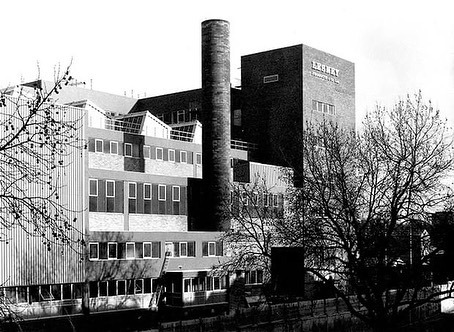
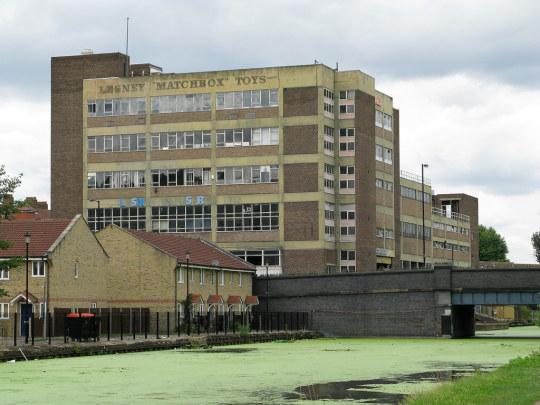
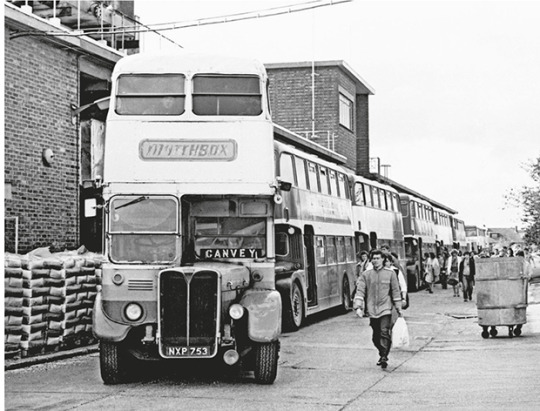
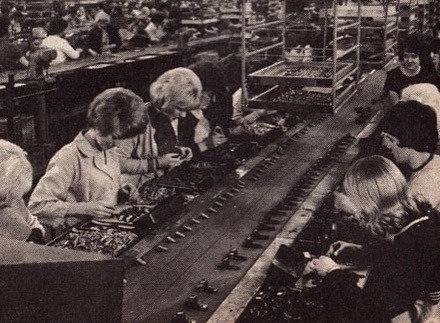
For many, Matchbox toy cars evoke childhood memories of afternoons spent driving over mountainous sofas and screeching around table leg bends. These days for bargain hunters and boot sale stalkers, they can now mean five figure sums for the right toy. But did you know they were manufactured in the East End of London?
The company existed until 1982 and had been started by Leslie and Rodney Smith who started an industrial die-casting company which they named Lesney Products in 1947. The name Lesney came from an amalgamation of their first names Les-Ney.
Starting off in a small building in Hackney, the move into toys only happened when they were sub contracted to cast toy guns for another company, with a cast road roller being their first in-house product. This was designed by John W. “Jack” Odell, who had become a partner in the operation and ultimately the one to spark the Matchbox brand because apparently his daughter was only allowed to have a toy which fitted in a matchbox while at school, thus Matchbox Toys was born. But their 1952/53 Coronation Royal State Coach built in two different scales really caught the publics attention and they sold over a million examples raising enormous capital, and that's when business and other projects really took off.
Expansion in the fifties saw them working from several spread out sites until 1963, when their new factory was built at Hackney Marshes, and with the new site there was increased productivity with up to a million products a day leaving the factory by 1969.
Lesney became one of Londons biggest employers, with women being the mainstay of production with their nimble hands handling the small and intricate parts, and they also liked the competitive pay and family support as well. Leslie Smith the then director of Lesney appreciated his workforce and to entice the women of Hackney to join the Matchbox ranks Lesney bought a fleet of redundant buses from London Transport, painted them in Matchbox’s trademark blue and yellow colours and offered free transport to and from work, as well as help with the school run and care for their children.
Like many toy manufacturers the company become the victim of different interests and Lesney and Matchbox lost its way and the company closed in 1982, with the Matchbox brand transferring to Mattel.
The factory was demolished in the early naughties with the site now occupied by luxury apartments called Matchmakers Wharf, I can't help but think that the person who named it lost the brief somewhere when it wasn't anything to do with matches at all. Maybe Lesney Wharf would have been a better name. What do you think?
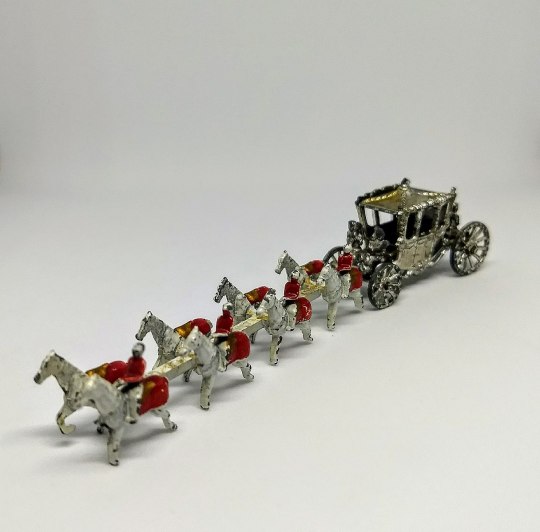
Lesney Products Coronation Coach from 1953.
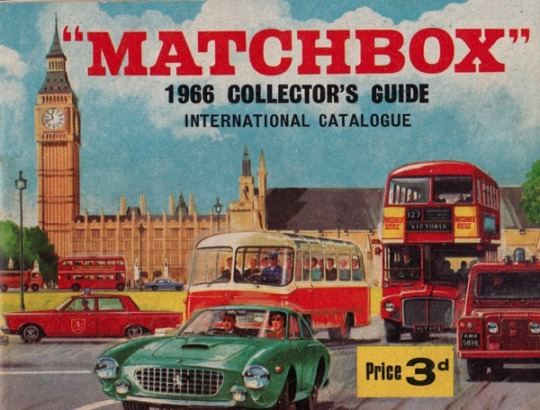
Matchbox Collectors Guide from 1966
#london history#london life#london people#social history#industry#east end#architecture#lesney products#20th century#1900s
79 notes
·
View notes
Text
✨ 15 days of Princess Anne ✨
August is Princess Anne’s birth month and her 73rd birthday is on the 15th so until then we will look at her fascinating life, one photo for every year!
The fifties
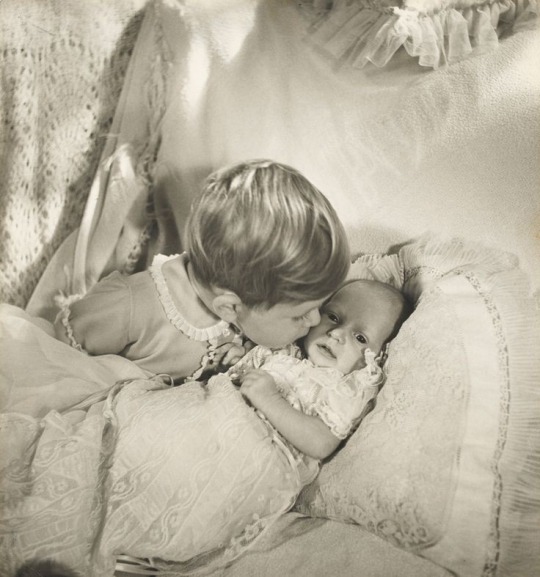
1950 18 month old Prince Charles kissing his newborn baby sister Anne’s cheek, taken by Cecil Beaton, September 1950.
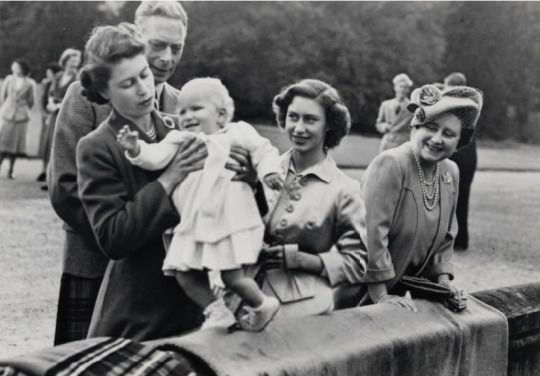
1951 One year old Princess Anne with her mother, Princess Elizabeth, Aunt Princess Margaret, Grandfather King George VI and Grandmother Queen Elizabeth. Taken at Balmoral Castle, August 1951.
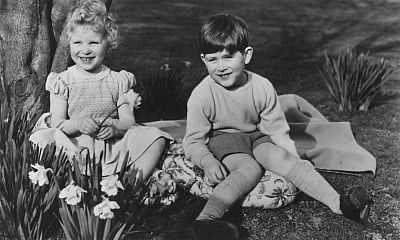
1952 Prince Charles and Princess Anne sat in daffodils in the gardens of Balmoral Castle, 28th September 1952.

1953 Princess Anne and her big brother Prince Charles playing peek-a-boo during the portrait session at their mother, Queen Elizabeth IIs coronation, in the throne room of Buckingham Palace, 2nd June 1953.
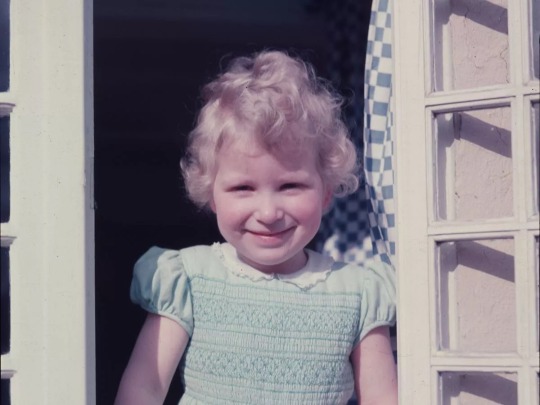
1954 Princess Anne taken through a window of the Little Welsh House at Royal Lodge, Windsor, 18th August 1954.
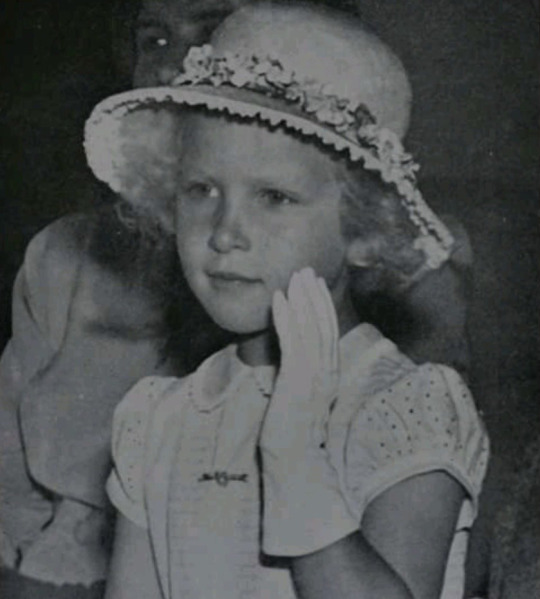
1955 Princess Anne waving to the crowds gathered outside Crathie Church, Balmoral on the eve of her 5th birthday, 14 August 1955.
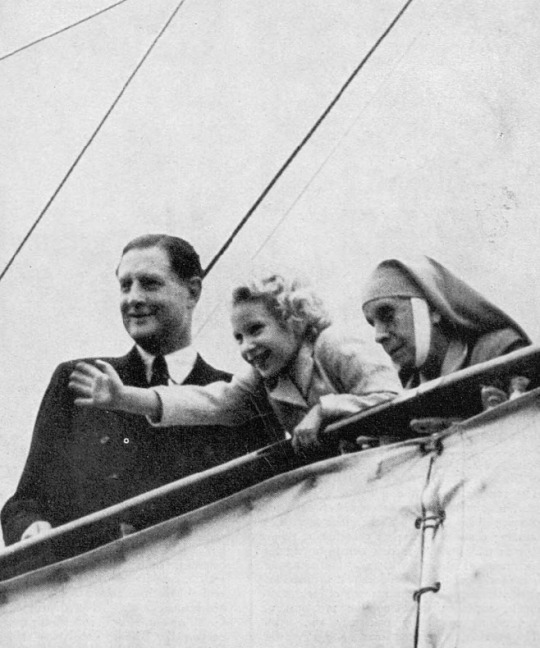
1956 Princess Anne with her paternal grandmother Princess Alice (Princess Andrew of Greece), aboard the Royal Yacht Britannia, Southampton, 9th August 1956.
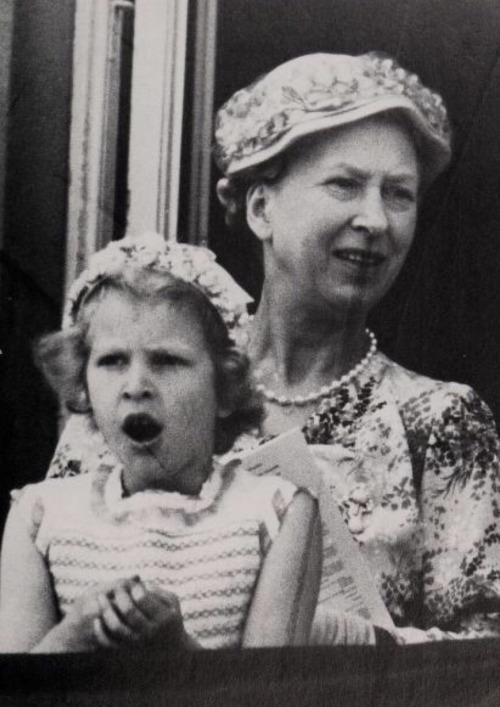
1957 Princess Anne with her great-aunt Mary, Princess Royal, watching the Trooping of the Colour from the balcony of Buckingham Palace on 13th June 1957.
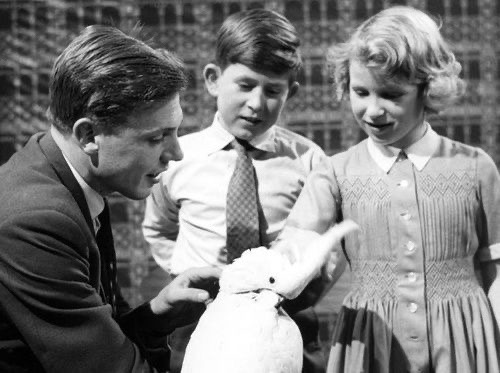
1958 Prince Charles and Princess Anne making friends with David Attenborough's 3 year old cockatoo, Cocky at the BBC television studios at Lime Grove, 29th April 1958.
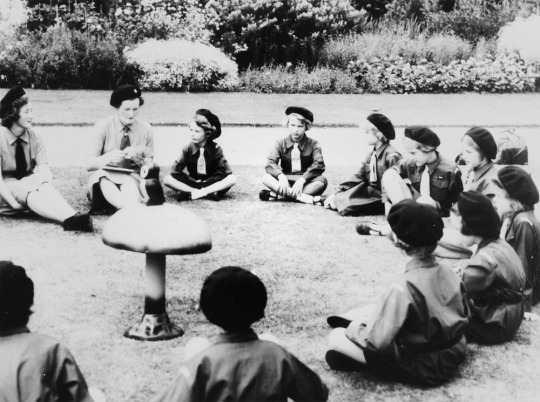
1959 Princess Anne, Brown Owl, Tawny Owl and the rest of the 1st Buckingham Palace brownie pack sitting in a circle with a toadstool and brown owl in the middle in the gardens of Buckingham Palace, 1st December 1959.
#15 days of anne#these photos are so adorable#the cutest little cherub#princess anne#princess royal#fetus anne
93 notes
·
View notes
Text
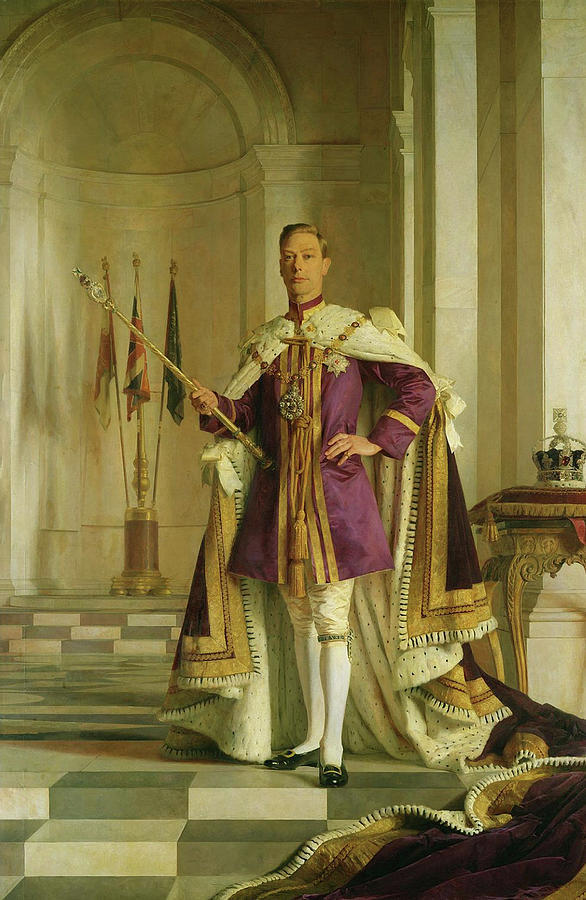
George VI Of The United Kingdom
Artist: Gerald Kelly (American, 1879–1972)
Title: George VI (1895-1952)
Genre: Portrait
Date: Between 1938 and 1945
Medium: Oil on Canvas
Collection: Royal Collection, Windsor Castle
Description
Full-length portrait of the King, standing in an interior based on the Viceroy's Building, Delhi, wearing Coronation robes with collar, star and garter of the Order of the Garter. His left hand is resting on his hip while he is holding the sceptre in his right hand. The Imperial State Crown rests on a cushion on a table to the right and three flags are visible in the background, inside a niche.
Kelly was initially commissioned to paint the state portraits of George IV and Queen Elizabeth in 1938. He started immediately and was nearly finished by the outbreak of the Second World War in 1939. The paintings were moved from his studio in London to Windsor Castle where Kelly spent the next five years completing his commission. Not only did the Castle provide a refuge for Kelly, the young Princesses Elizabeth and Margaret Rose were sent to the safety of Windsor for the duration of the war while their parents remained at Buckingham Palace.
The backdrop of this painting was originally intended to be the doors of the Crimson Drawing Room. Kelly later changed his mind and asked his friend Sir Edwin Lutyens to make a model, based on the Viceroy's House in Delhi, which makes the painting appear more spacious and stately.
#portrait#george VI of the united kingdom#coronation robes#gerald kelly#Sceptre#imperial state crown#flags#british royalty#royal family#king george vi
8 notes
·
View notes
Text
Coronation Timings
Queen Victoria
Ascended the throne: 20 June 1837.
Coronation: 28 June 1838.
Crowned 12 months after her ascension to the throne.
Edward VII
Ascended the throne: 22 January 1901.
Coronation: 9 August 1902, planned for 26 June 1902 but deferred because the King had appendicitis.
Crowned 19 months after his ascension to the throne. The coronation was originally planned for 17 months after ascension.
George V
Ascended the throne: 6 May 1910.
Coronation: 22 June 1911.
Crowned 13 months after his ascension to the throne.
Edward VIII
Ascended the throne: 20 January 1936.
Coronation: Never happened; he abdicated on 11 December 1936.
George VI
Ascended the throne: 11 December 1936.
Coronation: 12 May 1937.
Crowned 5 months after his ascension; the coronation was planned for his brother Edward VIII and was held 16 months after the death of George V.
Elizabeth II
Ascended the throne: 6 February 1952
Coronation: 2 June 1953
Crowned 16 months after her ascension to the throne.
Charles III
Ascended the throne: 8 September 2022.
Coronation: 6 May 2023.
Crowned 8 months after his ascension to the throne.
He just can't wait to be king crowned.
101 notes
·
View notes
Text
A list of random things Quincy Harker of dracula fame (born somewhere between 1890-1897) could've theoretically been around for. (These are mostly off the top of my head, it's definitely not a complete list)
-Both world wars (1914-1918 for ww1) (1939-1945 for ww1)
-the 1922 movie Nosferatu.
-The 1931 movie Dracula.
- The 1958 movie Dracula.
-The beatles (1960~)
-The invention of the Twinkie (1930)
- Queen Elizabeth's coronation. (1952)
- The first game of monopoly (1935)
- The emergence of Rock music (late 1940's)
- "I have no mouth, and I must scream" by Harllan Ellison (1967)
Feel free to add to that list :] I think it's very funny.
21 notes
·
View notes
Text
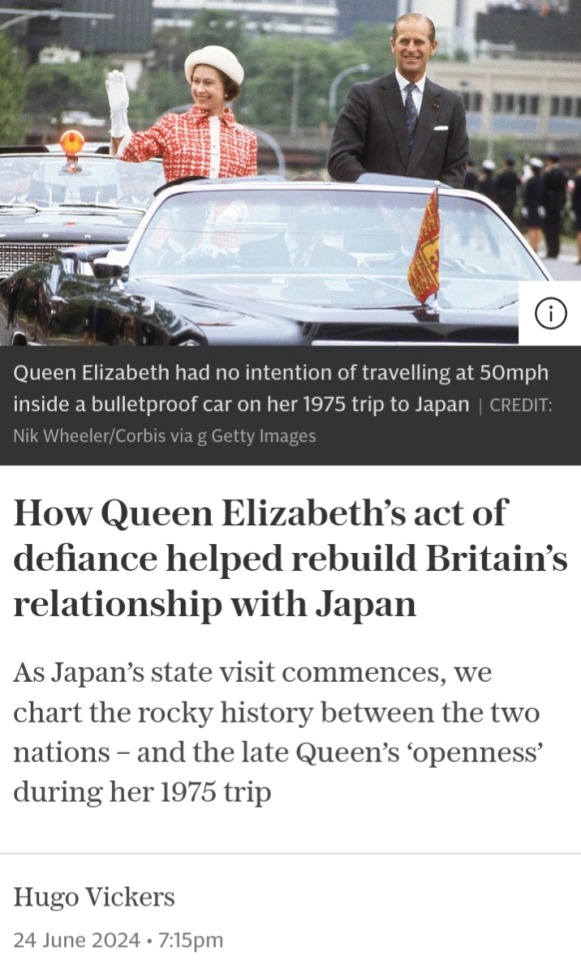
General elections are hardly famous for diplomatic exchanges.
But Rishi Sunak and Keir Starmer are sure to learn some lessons in pragmatism when Emperor Naruhito officially begins his state visit on 25 June.
What will they talk about if they attend the formal banquet at Buckingham Palace, as they are both expected to do, and at which they will perhaps be just a few seats apart?
Naruhito’s unexpected love of the Thames Barrier – he studied the history of cargo-carrying on the river during his spell at Oxford University – will surely appeal.
But the manner in which the British and Japanese royal families have rebuilt bridges after the deep scars of the Second World War might be a more illuminating place to start.
Those scars – the result of Japan’s crimes across the Asia-Pacific and the cruel treatment of British prisoners of war – had left a legacy of resentment that lasted long after the hostilities officially ceased in 1945.
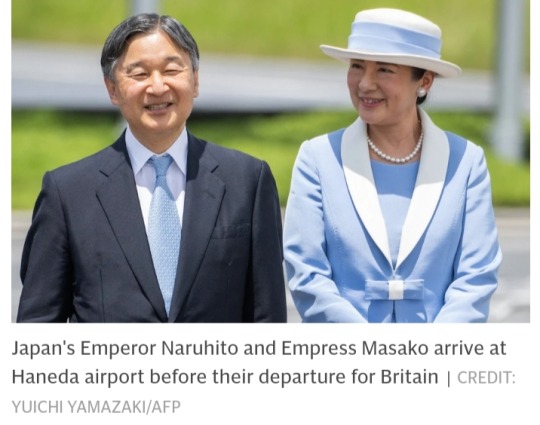
The pressure was on the young Queen Elizabeth II to restore good relations.
Though she rose to the occasion, making huge progress during her reign, the reconciliation was gradual to say the least.
In fact, when official diplomatic relations were restored in 1952, proceedings nearly fell at the first hurdle – over the Emperor’s Garter star.
When the new British Ambassador, Sir Esler Dening, presented his credentials to Emperor Hirohito, the Emperor’s household asked the British Foreign Office if he should wear what they called his “Garter rosette” when he received the ambassador.
The BFO said they preferred that this question had not been asked in the first place, given that Hirohito had of course picked the wrong side to align with during the war.
The exchange also highlighted what a delicate issue Garter honours had become.
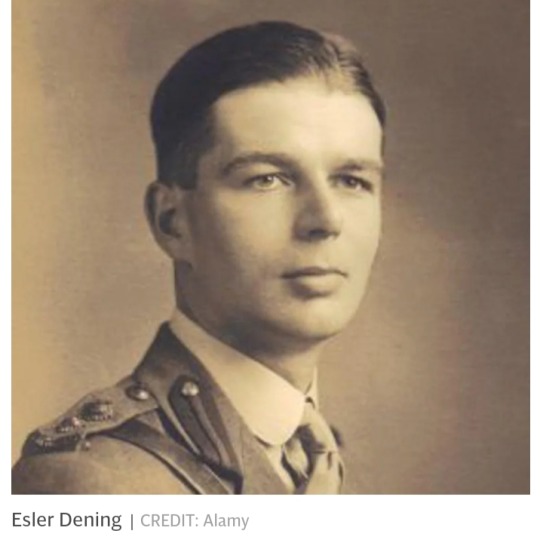
To rewind: It’s a tradition for Japanese Emperors to be made British Knights of the Garter.
By 1952, three had had the honour:
Emperor Mutsuhito, who was appointed in 1906 in recognition of the Anglo-Japanese Alliance of 1902; Emperor Yoshihito in 1912, and his son, Emperor Hirohito in 1928.
Emperor Mutsuhito, who was lucky to be appointed in the first place, had never actually left Japan, and Edward VII did not want him to have it because Mutsuhito was a non-Christian monarch.
But Edward changed his mind after Japan’s 1905 victory over Russia and sent Prince Arthur of Connaught to Tokyo on a Garter mission to present the Emperor with the insignia.
Back then this journey was no trifle:
It took Arthur a month to sail from Marseilles to Yokohama to ask Mutsuhito to accept “the highest mark of friendship and esteem which it is in His Majesty’s power to bestow."
The Emperor was so delighted by the honour that he broke tradition and personally received him at the Imperial Palace.
Yoshihito made it out as far as Korea, but his disabilities and sickly disposition prevented him from much else.
His son Hirohito, meanwhile, was much more used to overseas visits.
He’d already visited Britain as part of a European tour in 1921, when he was a rather shy Crown Prince (the Duke of Windsor, as the Prince of Wales, visited Japan the following year).
After Hirohito succeeded as Emperor in 1926 he was appointed to the Garter, which was the cue for another long trip from England to Japan (this time by Prince Henry, Duke of Gloucester) to invest him.
But during the Second World War, Hirohito was regarded as an enemy alien, and his Garter banner was removed from St George’s Chapel and “placed in the vaults.”
Did he know of his demotion? Surely Dening would have maintained a dignified silence when he was pitching his ambassadorial services in 1952.
But the missing banner did cause minor concern ahead of Crown Prince Akihito’s visit to represent his father at the 1953 Coronation.
Luckily, when he laid a wreath in St George’s Chapel in honour of Queen Mary, who had lately died, he did not notice the absence of the Imperial banner.
Instead, his mind was on more youthful pursuits: during his visit, he was keen to go racing and attend Wimbledon.
Ever the astute hostess, the Queen duly invited him to the Derby.
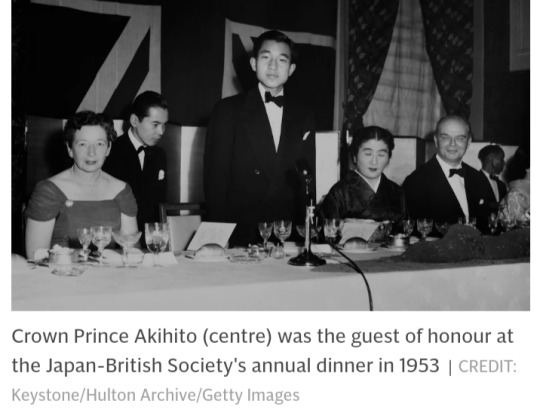
In those early post-war days, the bridge of cordiality that was slowly being built between Japan and Britain was as fragile as kintsugi porcelain.
A more important step towards reconciliation was needed and that came in 1961 when Elizabeth II’s cousin, Princess Alexandra, visited Japan.
She was accompanied by her mother’s private secretary, Sir Philip Hay, who had been a prisoner of war in the Far East, as a result of which he suffered recurring malaria.
Princess Alexandra found the Japanese very friendly but received letters asking why she had gone, since their families had suffered so gravely.
She told me that she gave him a “bottom scraper,” an unfortunately named device used for trawling the sea bed.
He was a marine biologist, having written several books on the subject and collected these objects.
Perhaps this inspired his grandson’s interest.
Whatever the Emperor made of his aquatic gift, he was undoubtedly more pleased by the fact that, during her visit, he was allowed to wear his Garter star.
During these and subsequent years, Princess Chichibu, the Emperor’s sister-in-law, worked tirelessly to improve Anglo-Japanese relations.
Her father had been Japanese Ambassador to Britain and she had been born in Walton on Thames.
With her husband, Prince Chichibu, she had attended the 1937 Coronation.
She became Patron of the Japan-British Society in Tokyo and had a prominent role during Princess Margaret’s visit for British Week in 1969.
At the time, Prince William of Gloucester even served at the British Embassy.
In 1970, King Charles III (as Prince of Wales) visited Japan, and the following year marked the first ever state visit by a Japanese Emperor to Britain when Hirohito landed on our shores once more.
When he accepted Queen Elizabeth II’s invitation, he addressed her as “Madam My Sister” and signed it “Your Majesty’s Good Brother.”
He added in his letter:
“I once visited your country when I was the Crown Prince and have always cherished the pleasant memories of it.”
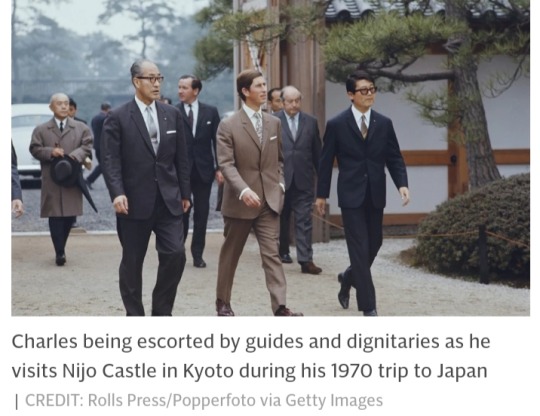
It was enough to restore his full diplomatic standing: he was quietly reinstated into the Order of the Garter, and a new banner raised over his stall.
The British newspapers were less forgiving:
Private Eye produced a particularly disparaging front cover, and David Walker, at the Foreign Office, wrote that his impression was “that the press became more hostile as the visit wore on.”
The public made their feelings known too: though the Emperor’s arrival at Victoria passed off smoothly, a man was arrested in the Mall for a mild incident, and a protester dug up the tree the Emperor planted at Kew.
Many more favourable column inches were devoted to the visit in the Japanese press, but the British Ambassador conceded: “the misdeeds of the past still remain alive.”
The return state visit by Queen Elizabeth II and Prince Philip in 1975 was a game-changer, however.
As part of it, the Queen wanted to drive through Tokyo in an open convertible Cadillac.
But Sir Fred Warner, the British Ambassador, was aware that there was ��a tradition in Japan of political assassination” and that the Japanese police had a “proper fear” for the Queen’s safety.
President Gerald Ford had visited shortly before and had been guarded by an astonishing 160,000 Japanese police.
As Warner put it, “might as well have been wearing a cloak of invisibility.”
The original plan for the Queen was that everywhere she went, she should be driven at 50mph in a car with dark bullet-proof glass.
Unsurprisingly, this held no appeal for her: the Queen got her way and what became known as “the Open Car Drive” passed into Japanese history.
Since it passed off well, the Japanese police emerged as heroes of the plan.
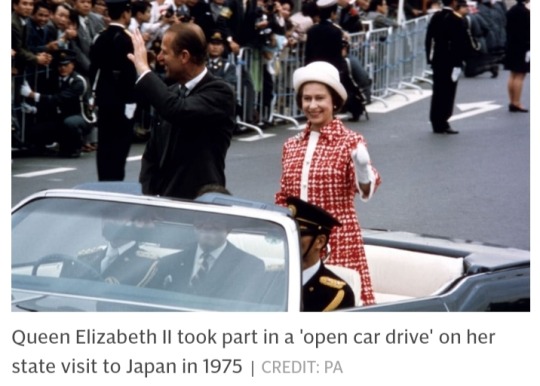
The effect was that the Emperor, who led a somewhat cloistered existence, was impressed by the openness of the British Royal family.
The members of the Imperial family “felt that a window had been thrown open and a gust of fresh air let into their lives.”
On both sides, the overwhelming view was that the Queen’s visit, with its innovative approach to visibility, had “marked a significant step towards reconciliation and renewal of old friendships.”
Prince Philip played his part too, making a virtue of lying by omission.
During the state visit he was frequently asked: “Your first visit to Japan?”
“Yes”, he said.
In truth, he had been in Japan in 1945 at the time of the Japanese surrender.
When Emperor Hirohito died in 1989, Prince Philip volunteered to represent the Queen, feeling he was the right person to do so, since he had served in the war and did not mind any criticism that might come.
A decade later, in 1998, it was Hirohito’s son Akihito’s turn to pay a state visit to Britain.
But this time, the press were more pro-actively hostile: one TV station sent a car down to the house of a former POW to film him looking at his photos from the war.
They also took him by car to the Mall to film him setting fire to a Japanese flag – directing the cameras so that the state procession could be seen passing behind him.
This was despite the fact that Emperor Akihito, unlike his father, had played no part in the Second World War.
Akihito was given the Garter on his visit. Naruhito will also receive it on his.
He’s an Anglophile, having attended Oxford’s Merton College between 1983 and 1985.
During that time, while studying the waterways of Britain, he wrote:
“The name of the Thames conjures up in me feelings of affection and nostalgia transcending distance and time.”
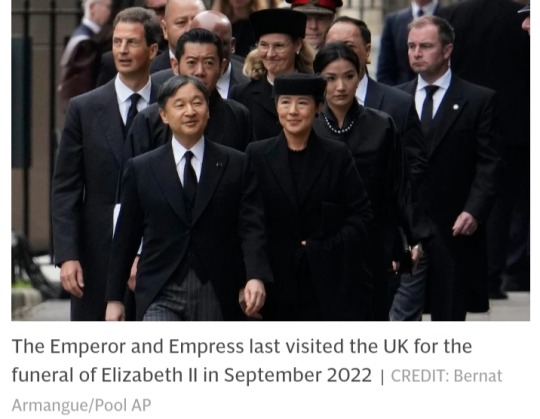
In 2006, King Charles wrote of “the close friendship between the United Kingdom and Japan, which is reflected in the solid bond between the Imperial and Royal Families.”
This visit will further cement that bond – something that the Emperor will reflect on when he privately visits St George’s Chapel at Windsor on June 27 to lay a wreath on the tomb of Queen Elizabeth II.
There, the Garter banner of his father will be above his stall, and the stallplates of his predecessors in their stalls – a permanent record of years of growing friendship.
#Emperor Naruhito#Empress Masako#Queen Elizabeth II#Prince Philip#King Charles III#Imperial House of Japan#Japanese Royal Family#British Royal Family#Japan State Visit 2024#Emperor Hirohito#Sir Esler Dening#British Foreign Office#Garter rosette#British Knights of the Garter#Emperor Mutsuhito#Emperor Yoshihito#Edward VII#Prince Arthur of Connaught#Prince Henry#Duke of Gloucester#Queen Mary#Princess Alexandra#Princess Chichibu#Princess Margaret#Prince William of Gloucester#Sir Fred Warner#US President Gerald Ford#Open Car Drive
16 notes
·
View notes
Text
because I'm finally back after Years, I've got several small fics about someone witnessing a first kiss! this is the first of those :)
--
open doors
pairings/characters: Australia/Seychelles, England
word count: 586
summary:
England finds two of his guests throwing propriety to the wind after the Queen's coronation.
--
1952
England couldn’t immediately place the laughter he heard, although he knew it was at least somewhat familiar. Feminine, which certainly narrowed the options down quite a bit, but not enough by far.
Curious what was so amusing, he followed the sound through the halls of the palace, where many nations were currently staying as honoured guests, until he found the room it came from. Just as he peered around the corner of the doors, a more familiar, masculine voice joined in the laughter.
Australia had grown a lot over the past half-century, and was now a tall, strong young man, but he still had the same mischievous laugh and wild hair as centuries before. England could see that right now, he was only wearing a short-sleeved undershirt despite the draught, and that the female nation with him in the room was, in fact, Seychelles. Her dark hair was still piled on her head in artful curls, but she was now draped in several layers of clothing over her formal dress—including both Australia’s shirt and jacket.
England shook his head, unnoticed. The boy still had no sense of propriety.
“You can’t be serious!” Seychelles was saying through laughter, tugging the jacket tighter around her shoulders. From his place hidden by the doors, England could see both of their profiles, and he saw Australia grin as he leant forward in his seat.
“I promise, Sey, I’m dead serious. Smuggled himself all the way to Sydney. Never seen England so baffled again.”
Sey? Honestly, that boy. And—wait—not that story!
“Just as well, probably,” she was saying, drawing her feet up on the settee (!) and smiling back at Australia.
Really, England thought, leaning against the doorframe, he ought to put a stop to all this.
“Could be,” Australia replied, voice gone curiously soft all of a sudden. It was quite startling to England, who’d only ever known him as loud. “It’s not all bad, anyway.”
“D’you reckon?” Seychelles asked, and now she sounded… Teasing? What had France taught that girl?
“Well, good chance I’d never have met you if not for the Queen, yeah?”
“Long live the Queen then, isn’t it?”
“Long live the Queen.”
England peeked around the doors again and saw that both nations had now leant far forward in their seats, Seychelles sitting cross-legged and with sleeves covering her hands in her lap. She looked down at them, then up at Australia, and smiled again.
“Sey,” he started, and England had no idea what passed between the two of them in the moment after that, but he saw Australia stand suddenly to step close to the settee. Seychelles tilted her head up to him, then lifted one sleeve-covered hand to his face as he leant down and kissed her, both hands curling around her jaw.
England clasped a hand over his mouth to stifle a noise that wanted to escape and quickly hid behind the door again. No propriety at all! Anyone could see! Not to mention… Oh—they’d probably not see each other for years and years after this, having no close political ties and only being in London for the coronation.
Foolish young nations. That was a hard lesson to learn, England knew this all too well.
Cautiously, he peeked once more. The two of them were now both on the settee, faces close together and talking much too low for him to understand.
With a sigh, England silently closed the doors to the room, and went on his way. Long live the Queen.
2 notes
·
View notes
Photo
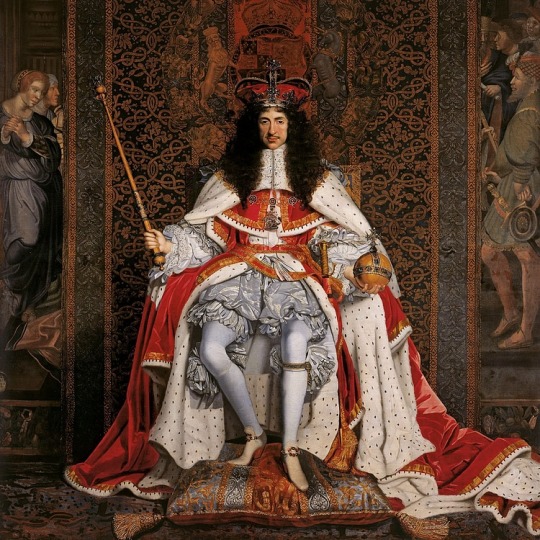
The Coronation Ceremony of the British Monarchy
The coronation ceremony of the British monarchy as we know it today involves many elements that have been a part of the pageantry ever since the 11th century. Such features of the ceremony carried out in Westminster Abbey since 1066 have been maintained by successive monarchs right down to Queen Elizabeth II (r. 1952-2022) and her coronation on 2 June 1953, as all rulers were keen to show they were part of a long-standing tradition.
Continue reading...
40 notes
·
View notes
Photo
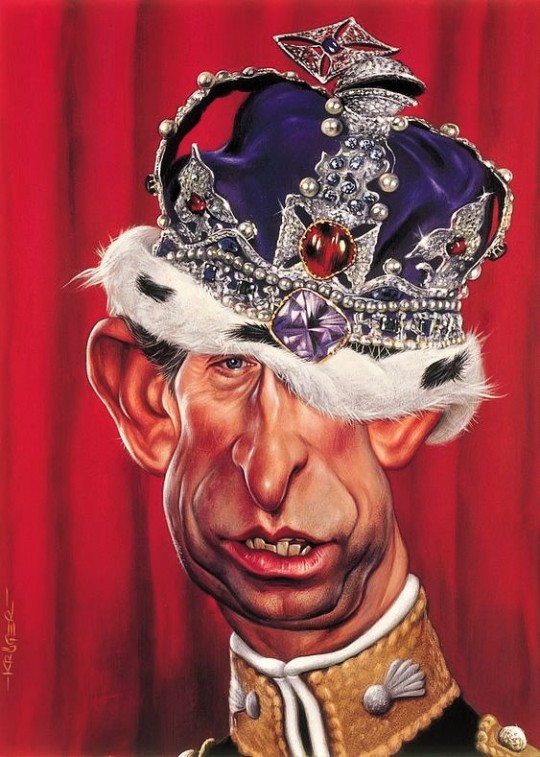
Inevitably, they are rich. Extremely rich. Very, very rich. There are the things you can see: the castles, the country estates and the top-of-the-range cars with which to drive between them. There are enough horses to stable an entire stud. There are the exquisite jewels and enormous gems glittering at state banquets.
There are the things you can’t see, too: the sprawling tax-free hereditary property firms and the share portfolio acquired with their annual dividends. There are the works of art in the family’s private collections, rarely, if ever, publicly exhibited. So if we already know all this, why, on the eve of the coronation of King Charles III, investigate the wealth of the British royal family?
The first and simplest answer is that we simply ought to know. From 10 Downing Street to your local district council, the private finances of public servants are fair game for scrutiny where they are derived from public funds. If anything, the need for clarity here is greater: Rishi Sunak and the mayor take money from the public purse only temporarily. The life of the king is funded at taxpayer expense from birth to death.
The second answer is that, to be blunt, the Windsors act as if they have something to hide. The finances are murky as hell, and structured according to a formula that means their annual handouts can only go up, never down. For several decades their shareholdings were owned through a secret shell company at the Bank of England that was immune from national transparency law. The judiciary has sealed their wills from public scrutiny in secret hearings for the past century. This is not the behaviour of a family relaxed about the prospect of an informed citizenry.
The question is not merely how wealthy he is, the question is: how much of the king’s private wealth is derived from his public role? Only once Britain has an answer to that can it discuss the most important question of all: is this really a good way to spend public money?
Just how rich is he? The first problem with valuing King Charles III’s private wealth is that nobody knows precisely how rich he is, probably including him. Centuries of dynastic marriages with the British aristocracy and the royal houses of Europe have produced a family whose personal history is intertwined with Britain’s national story, and whose personal wealth is inextricable from their public position.
Take the Cullinan III and IV diamonds: two gems cleaved from the largest diamond ever discovered and presented as a gift from the South African government to the king’s great-grandmother Queen Mary in 1910. She wore them in her coronation crown and later as a pair in a brooch, which was left to the queen and then, presumably, the king (the family pays no inheritance tax as long as assets are bequeathed monarch-to-monarch). Elizabeth inherited the brooch in 1953 when Mary died, rather than in 1952 when she became queen. That indicates that the jewels are private. But by modern standards, they were clearly official gifts, so shouldn’t they be national heritage?
The second problem is the culture of extreme deference and secrecy that surrounds the royal family. This is partly a result of a media environment that covers the Windsors as dysfunctional celebrity aristocrats, rather than figures of serious political or constitutional significance. It has created a culture in which the royal institution itself is above normal standards of scrutiny, and where any remotely uncomfortable or probing question, no matter how valid, is ignored or dismissed by default.
Palace responses to questions about the king’s wealth ranged from “we’re too busy, perhaps we’ll respond next week” to “that’s really none of your business”. Questions about which jewels were owned by the state went unanswered. At one point the press office announced it was too busy to respond to further questions until after the coronation. Issued the same day as a palace statement about a celebratory quiche, this did not feel especially convincing. When pushed, the king’s spokesperson said: “Your figures are a highly creative mix of speculation, assumption and inaccuracy.”
The short answer is that, all told, we think Charles is worth at least £1.8bn. But it’s the longer answer, about how the king came to be worth so much, that is more interesting. Excursions to the parliamentary archives to dig out accounts for their hereditary estates unearthed cash payments to the king and his late mother dating back to 1952. That the king and his mother together pocketed more than £1.2bn in annual dividends from the estates (adjusted for inflation) was just as breathtaking as the discovery that they were paying themselves about 10 times more by the end of her reign than they were at the start.
Then you find the gifts. There are the mint-condition stamps from the governments of Cambodia and Laos that have, it appears, been subsumed into the family’s private stamp collection (estimated value: £100m). There are the works of art: an illustrated Bible from the modernist master Marc Chagall, or an etching from Salvador Dalí, both presented to Prince Philip during official visits overseas and both subsequently exhibited as being part of his “personal collection”. The monarchy’s own policy says that gifts from other monarchs “as a general rule” enter the national collection of state heritage, but two diamond necklaces given to the late queen by Saudi kings are mysteriously absent.
You also find lingering traces of the dark moments in Britain’s history. A 100-year-old memo in the British Library records the looting of the city of Lahore in 1849 and the theatrical presentation of plundered diamonds, rubies, pearls and emeralds to an ecstatic Queen Victoria. Once the pride of the British empire, the Koh-i-noor diamond now sits in a vault in some strange, disgraced hinterland: to wear it would be too offensive, to return it to its rightful owners too humiliating.
The historian Brooke Newman discovered a page in a 17th-century share register documenting the transfer of £1,000 of shares in the Royal African Company from the slaver Edward Colston to William III, the first of 14 monarchs to either cultivate the slave trade or harvest its profits. Perhaps revealingly, this was the one dimension of our inquiries to startle the palace into issuing an extended public statement describing how “profoundly seriously” Charles considered the matter.
Does the king need a state grant? The immediate political question flowing from the king’s wealth is obvious. If the family is this rich, why does it need an annual sovereign grant (currently £86m a year) from parliament? Why are the multimillion-pound payments from the hereditary estates not paid to the Treasury, or at least taken into consideration when setting their annual stipend? Alternatively, if the estates are genuinely private assets, why don’t they pay corporation tax?
After that come much more difficult questions about how a constitutional monarchy behaves in a modern society. Behind the pomp, the wealth and the opulence is a lurking sense of a monarchy designed for the more deferential age of the 19th century, when its purpose was fuzzy but simple: unite and represent the nation.
This, however, is a 21st-century coronation. Whether multimillion-pound salaries and disdain for difficult questions can really unite and represent the values of a modern democracy remains to be seen.
Daily inspiration. Discover more photos at http://justforbooks.tumblr.com
29 notes
·
View notes
Text
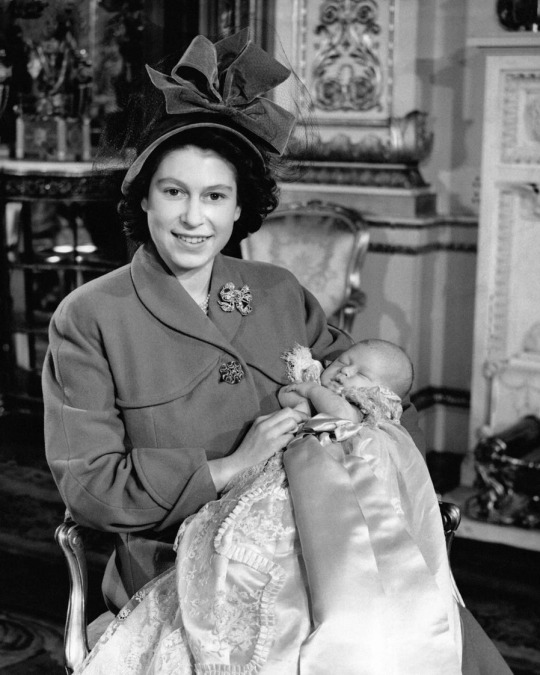
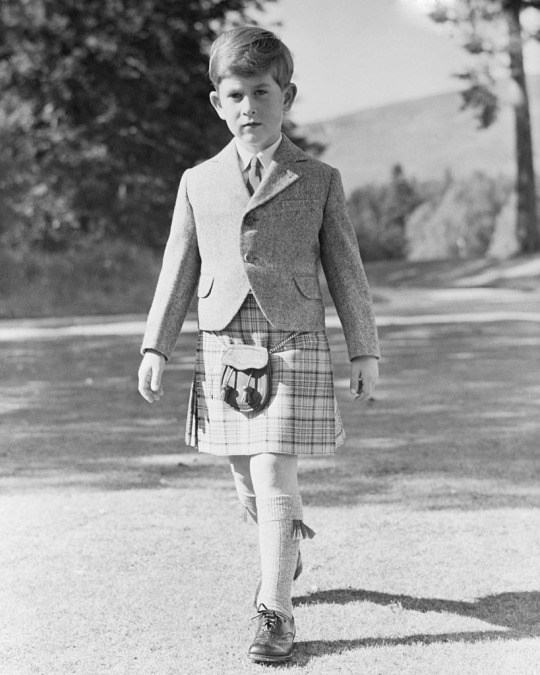
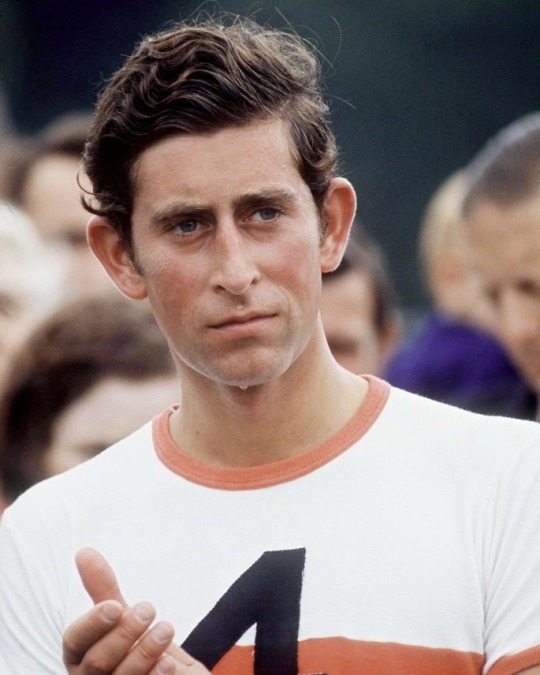
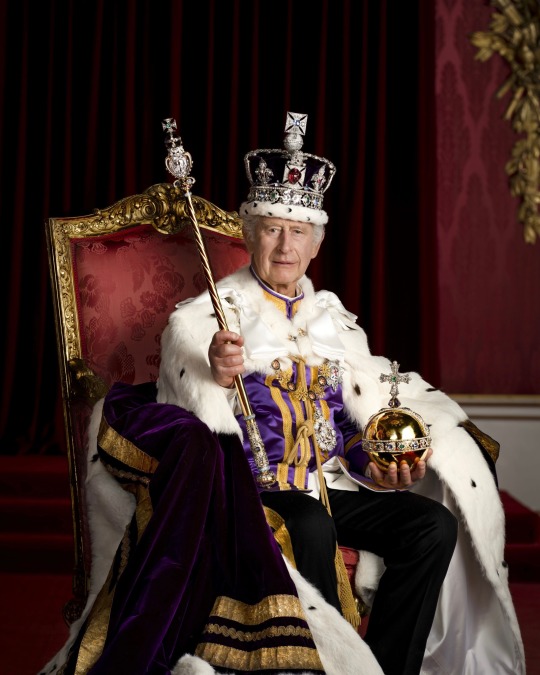
Happy 75th birthday to King Charles III of the United Kingdom!
Born 14 November 1948, Charles Philip Arthur George is King of the United Kingdom and the 14 other Commonwealth realms.
Charles was born in Buckingham Palace during the reign of his maternal grandfather, King George VI, and became heir apparent when his mother, Queen Elizabeth II, acceded to the throne in 1952. He was created Prince of Wales in 1958 and his investiture was held in 1969. After earning a history degree from the University of Cambridge, Charles served in the Royal Air Force and the Royal Navy from 1971 to 1976.
In 1981, Buckingham Palace announced his engagement to Lady Diana Spencer and their wedding took place in St Paul’s Cathedral on 29 July of the same year. They had two sons, William (41) and Harry (39). Charles and Diana divorced in 1996, and in 2005, Charles married his long-term partner, Camilla Parker Bowles.
Charles became king upon his mother's death on 8 September 2022. At the age of 73, he became the oldest person to accede to the British throne, after having been the longest-serving heir apparent and Prince of Wales in British history. His coronation took place at Westminster Abbey on 6 May 2023.
42 notes
·
View notes
Note
Certain people were making a fuss over Biden not attending the coronation, like the DUP (who are kind of like the Northern Irish equivalent of the GOP) and Trump snarling that the US insulted the UK by doing so. Is it standard for the POTUS not to attend a coronation?
No President has ever attended the coronation of a British sovereign, so it would have been unprecedented if Biden had attended King Charles III's coronation.
Don't forget that the United States was literally created by rebelling and fighting against the King of England. There was no "special relationship" until the 20th Century. The U.S.-UK relationship was hostile through a large part of the 19th Century, with two all-out wars between the countries and simmering tensions through the Civil War.
Presidents didn't begin traveling internationally while in office until the beginning of the 20th Century, and even then, it wasn't something really done all that regularly until after World War II. King Edward VIII abdicated before he was crowned and King George VI's coronation was in 1937. So, during the time that Presidents have regularly attended international events there have only been two coronations (Elizabeth II's in 1953 and the King's coronation last weekend), and it's not the type of event that American Presidents normally attend personally.
President Biden was the first incumbent President to attend the funeral of a British monarch. When King George VI died in 1952, the United States was represented by Secretary of State Dean Acheson. General Dwight D. Eisenhower, who ran for President later that year, also attended, but he was Supreme Commander of NATO at the time and as Supreme Allied Commander during World War II, he had worked closely with the British and King George. When King Edward VII died in 1910, former President Theodore Roosevelt attended his funeral and that was a pretty big deal at the time, so it shows how unprecedented these types of things still can be.
#Coronation#King Charles III#British Monarchs#Presidents#Heads of State#Coronation of King Charles III#President Biden#History#Politics
23 notes
·
View notes